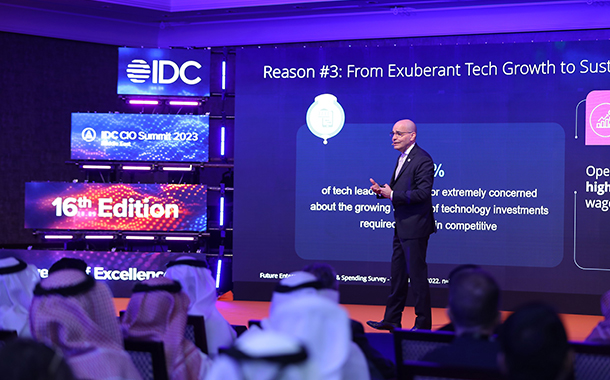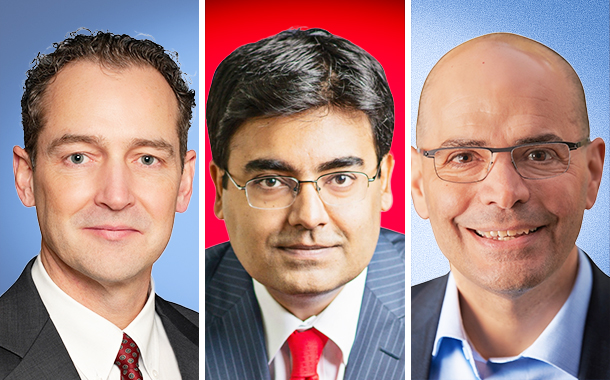From a geographic perspective, the United States will be the single largest market for security solutions with spending forecast to reach $44.7 billion in 2019. Two industries – discrete manufacturing and the federal government – will account for nearly 20% of the US total.
The second largest market will be China where security purchases by three industries – state and local government, telecommunications, and central government, will comprise 45% of the national total. Japan and the UK are the next two largest markets with security spending led by the consumer sector and the banking industry respectively.
While the US and Western Europe will deliver two-thirds of the total security spend this year, the largest growth in security spend will be seen in China, Asia Pacific excluding Japan and China, and Latin America, each with double-digit CAGRs over the five-year forecast period.
Globally, the three industries that will spend the most on security solutions in 2019 – banking, discrete manufacturing, and federal government – will invest more than $30 billion combined. Three other industries – process manufacturing, professional services, and telecommunications, will each see spending greater than $6.0 billion this year. The industries that will experience the fastest spending growth over the forecast period will be state government 11.9% CAGR, telecommunications 11.8% CAGR, and the resource industries 11.3% CAGR.
This spending growth will make telecommunications the fourth largest industry for security spending in 2022 while local government will move into the sixth position ahead of professional services.
When examining the largest and fastest growing segments for security, IDC sees a mix of industries, such as banking and government, that are charged with guarding highly sensitive information in regulated environments. In addition, information-based organisations like professional services firms and telcos are ramping up spending. But regardless of industry, these technologies remain an investment priority in virtually all enterprises, as delivering a sense of security is everyone’s business.
Managed security services will be the largest technology category in 2019 with firms spending more than $21 billion for around-the-clock monitoring and management of security operations centres. Managed security services will also be the largest category of spending for each of the top five industries this year.
The second largest technology category in 2019 will be network security hardware, which includes unified threat management, firewalls, and intrusion detection and prevention technologies.
The third and fourth largest investment categories will be integration services and endpoint security software. The technology categories that will see the fastest spending growth over the forecast will be managed security services 14.2% CAGR, security analytics, intelligence, response and orchestration software 10.6% CAGR, and network security software 9.3% CAGR.
The security landscape is changing rapidly, and organisations continue to struggle to maintain their own in-house security solutions and staff. As a result, organisations are turning to managed security service providers, to deliver a wide span of security capabilities and consulting services, which include predicative threat intelligence and advanced detection and analysis expertise that are necessary to overcome the security challenges happening today as well as prepare organisations against future attacks.
Large 500-1000 employees, and very large businesses, more than 1000 employees, will be responsible for roughly two thirds of all security-related spending in 2019. These two segments will also see the strongest spending growth over the forecast with CAGRs of 11.1% for large businesses and 9.4% for very large businesses. Medium 100-499 employees, and small businesses 10-99 employees, will spend nearly $26 billion combined on security solutions in 2019. Consumers are forecast to spend nearly $5.7 billion on security this year.
Worldwide spending on security-related hardware, software, and services is forecast to reach $103.1 billion in 2019, an increase of 9.4% over 2018. This pace of growth is expected to continue for the next several years as industries invest heavily in security solutions to meet a wide range of threats and requirements. According to the Worldwide Semiannual Security Spending Guide from IDC, worldwide spending on security solutions will achieve a compound annual growth rate of 9.2% over the 2018-2022 forecast period and total $133.8 billion in 2022.
The Worldwide Semiannual Security Spending Guide quantifies the global revenue opportunity for both core and next-generation security purchases. The guide offers detailed forecast data for security spending by 20 industries across nine regions and 43 countries. Unlike any other research in the industry, the comprehensive spending guide was designed to help IT decision makers to clearly understand the industry-specific scope and direction of security-related spending today and over the next five years.
Key takeaways
- From a geographic perspective, the United States will be the single largest market for security solutions.
- The second largest market will be China where security purchases by three industries, will comprise 45% of the national total.
- Japan and UK are the next two largest markets with security spending led by the consumer sector and banking industry.

























